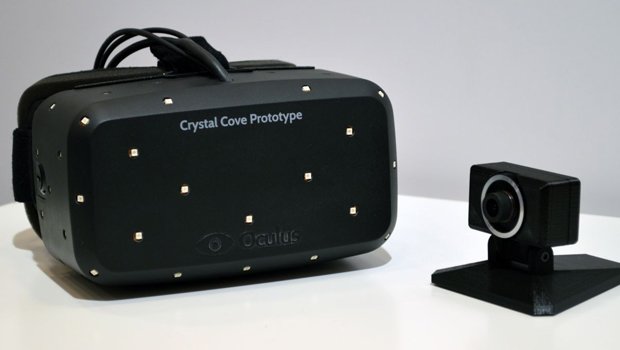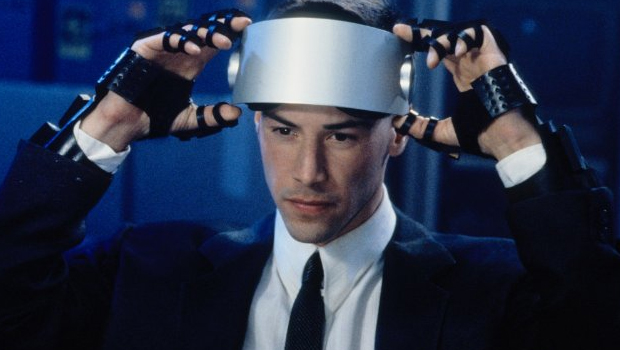Why Facebook's $2 billion purchase of Oculus VR is a good thing
Zuckerberg, you done done it again. News broke today that Facebook has just acquired Oculus VR, the tech company behind the ever-advancing Oculus Rift headset. The knee-jerk reaction you're probably experiencing right now is bewilderment at Facebook's $2 billion investment into such a gaming-oriented product. Turns out, Facebook plans on expanding it past its original purpose. But don't worry: as of this moment, Oculus Rift will be made for gamers first and classrooms second.
"Mobile is the platform of today, and now we’re also getting ready for the platforms of tomorrow," said Facebook CEO Mark Zuckerberg. "Oculus has the chance to create the most social platform ever, and change the way we work, play and communicate."

In plain English, VR may be the next step in how we interface with one another (which, depending on how you look at it, could be a welcome advancement past staring at our smartphones 24/7). Facebook being a company driven by virtual-but-still-social interactions, it makes sense that it'd double-down on the current frontrunner in virtual reality.
None can deny the usages for VR beyond fully immersive gaming. Zuckerberg cites the possibility of "enjoying a court-side seat at a game, studying in a classroom of students and teachers all over the world, or consulting with a doctor face-to-face--just by putting on goggles in your home." When you think about the long-term potential for VR and the Rift, should it take off, cool video games seem like a baby step towards an adulthood in a virtually interconnected world.
And if Facebook is to become a cornerstone of wearable computer like Google Glass (which, let's face it, is inevitable), Oculus Rift could be the perfect test chamber for what those applications might look like. When GamesRadar's Hollander Cooper chatted with Oculus VR CEO Palmer Luckey at PAX Prime 2013, Luckey mentioned that many companies were using the Rift as a proving ground for technology that might still be decades away.
But don't think that everything that appealed to gamers about the Oculus Rift (things like John Carmack's involvement, EVE Valkyrie and support in a multitude of PC games) will be falling by the wayside in favor of a three-dimensional Facebook news feed. Making a statement via his status update (the pomp!), Zuckerberg said that "[Oculus Rift] opens up the possibility of completely new kinds of experiences. Immersive gaming will be the first, and Oculus already has big plans here that won't be changing and we hope to accelerate."
I like where your head's at, Zuckerberg--you've clearly got your priorities in order.
Sign up to the GamesRadar+ Newsletter
Weekly digests, tales from the communities you love, and more
Just about everyone wins in this situation. If you're a consumer hoping to get your own Rift sooner rather than later, this is good news--the mega-billions in Facebook's pocket ensure that the advancements towards widespread distribution should come much quicker. If you're a developer making games with Rift in mind, you're happy--now you'll get your creation in front of even more consumers.

"The Rift is highly anticipated by the gaming community, and there's a lot of interest from developers in building for this platform," said Zuckerberg. "We're going to focus on helping Oculus build out their product and develop partnerships to support more games. Oculus will continue operating independently within Facebook to achieve this." That means that, despite any fears that Facebook might somehow run this project into the ground, it sounds like Facebook will be pretty hands-off on anything besides funding. Zuckerberg knows that these guys need their space if they're going to create the best high-tech headset possible.
So there's really nothing to fear here. I'm not saying that a VR-enabled version of Candy Crush Saga won't pop up somewhere down the line. But you, the gamer, won't be taking a backseat to rich teenagers in private schools or doctors in training--from what Zuckerberg's saying, it looks like gaming will be the proving grounds of what Oculus VR is capable of. And hey, billions of dollars being injected into an exciting new platform is rarely, if ever, a bad thing.
Lucas Sullivan is the former US Managing Editor of GamesRadar+. Lucas spent seven years working for GR, starting as an Associate Editor in 2012 before climbing the ranks. He left us in 2019 to pursue a career path on the other side of the fence, joining 2K Games as a Global Content Manager. Lucas doesn't get to write about games like Borderlands and Mafia anymore, but he does get to help make and market them.



